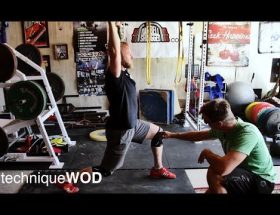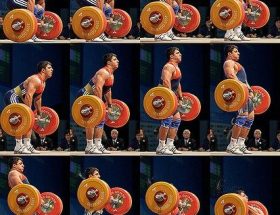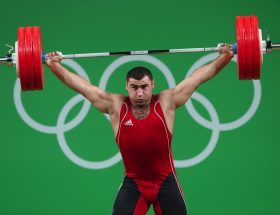Powerlifting is a demanding sport that requires not only physical strength, but also mental toughness. In the competitive world of powerlifting, athletes face numerous challenges that test their mental fortitude. Developing and maintaining mental toughness is crucial for success and overcoming obstacles in this challenging sport.
The Importance of Mental Toughness
Mental toughness is the ability to remain focused, determined, and resilient in the face of adversity. In powerlifting, it is essential for athletes to possess a strong mind in order to overcome the physical and psychological challenges that come with the sport.
Mental toughness allows powerlifters to push beyond their limits, stay committed to their goals, and perform at their best even under pressure. It helps them cope with setbacks, overcome self-doubt, and maintain a positive mindset throughout their training and competition journey.
Building Mental Toughness
Building mental toughness is a process that requires dedication, practice, and perseverance. Here are some strategies that powerlifters can employ to develop their mental toughness:
1. Goal Setting and Visualization
Setting clear and specific goals is crucial for mental toughness. Powerlifters should establish both short-term and long-term goals that align with their aspirations. Visualizing the successful accomplishment of these goals can enhance motivation and focus. By visualizing themselves overcoming challenges and achieving their desired outcomes, powerlifters can develop a stronger mental mindset.
2. Embracing the Discomfort
Powerlifting is physically demanding, and discomfort is a constant companion during training and competitions. Mental toughness involves embracing the discomfort and viewing it as an opportunity for growth. Powerlifters should learn to push through discomfort and understand that it is a necessary part of the process. By embracing the discomfort, athletes can develop mental resilience and improve their performance.
3. Developing Positive Self-Talk
Our thoughts and self-talk greatly influence our performance. Negative self-talk can hinder progress and erode mental toughness. Powerlifters should strive to develop positive self-talk and cultivate optimism. By replacing negative thoughts with positive affirmations, powerlifters can build resilience and maintain focus during challenges.
4. Practicing Mindfulness and Breathing Exercises
Mindfulness and breathing exercises can assist powerlifters in enhancing their mental toughness. By practicing mindfulness, athletes can learn to stay present in the moment, focus their attention, and let go of distractions. Breathing exercises can help regulate emotions and reduce stress, allowing powerlifters to maintain composure during competitions.
5. Seeking Support and Building a Supportive Network
Powerlifters should seek support from coaches, trainers, teammates, and friends. Having a supportive network can provide encouragement, motivation, and guidance during both successes and setbacks. Surrounding oneself with like-minded individuals who understand the challenges of powerlifting can help powerlifters stay mentally strong and resilient throughout their journey.
Mental Toughness and Competition
Competition is where mental toughness truly shines in powerlifting. Athletes face intense pressure and high expectations during competitions. Here are some ways mental toughness plays a vital role in powerlifting competitions:
1. Overcoming Pre-Competition Nerves
Pre-competition nerves are common in powerlifting. Mental toughness enables athletes to manage their anxiety, stay focused, and perform at their best despite the nerves. Powerlifters who possess mental toughness can use these nerves as motivation to excel in their lifts.
2. Dealing with Unexpected Challenges
Competitions can present unexpected challenges such as equipment malfunctions, long wait times, or changes in the schedule. Mental toughness allows powerlifters to adapt to these challenges, maintain a positive attitude, and perform their best under adverse circumstances.
3. Bouncing Back from Failures
Failure is an inevitable part of powerlifting. Mental toughness helps athletes bounce back from failures, learn from their mistakes, and stay motivated in the face of setbacks. Powerlifters with strong mental fortitude understand that failures are opportunities for growth and use them as stepping stones towards improvement.
4. Staying Focused and Committed
During competitions, distractions are aplenty. Mental toughness enables powerlifters to stay focused and committed to their lifts, blocking out external factors that may affect their performance. It helps them maintain a clear mind, execute their techniques without hesitation, and achieve their best results.
Conclusion
Mental toughness is a vital aspect of powerlifting that goes beyond physical strength. It is the key to overcoming challenges, staying focused, and achieving success in this demanding sport. By employing strategies such as goal setting, positive self-talk, mindfulness, and seeking support, powerlifters can develop and enhance their mental toughness. With mental fortitude, powerlifters can conquer any obstacle and reach new heights in their powerlifting journey.








